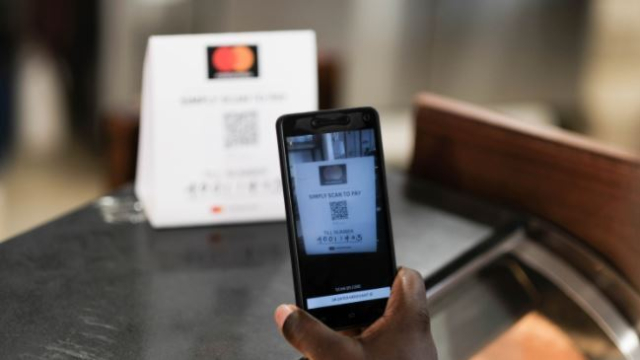The use of Ghana Interbank Payment and Settlement System (GhIPSS) instant pay (GIP) services continues to see huge jumps in volume as more people turn to the service.
The volume of instant pay transactions between January and March this year, stood at a little over one million, representing a growth of 693.8 percent compared to 126,925 transactions during the same period last year.
GhIPSS Instant Pay is an electronic payment system that enables a customer to transfer money from one bank account to another of a different bank or to a wallet and the transfer is effected instantly.
Though instant pay can be accessed from the banking halls, it is mostly available on the various internet and mobile banking platforms of the banks.
Many Fintechs also ride on the GIP technology for their money transfer services.
Electronic payment channels have become important in the wake of the coronavirus (Covid-19), as cash could be a channel of spreading it.
Although a full assessment of the impact of COVID-19 on electronic payments was yet to be done, a further analysis of the data from GhIPSS showed a significant increase in GIP transactions in the month of March, when Ghana started recording its positive cases.
According to the figures, while GIP volumes in February this year dropped by seven percent compared to January of the same year, the volume of transactions increased in March by 53.6 percent.
This shows that GIP was used many more times in March compared to January and February of 2020, a development attributable to increased use of electronic payments due to COVID-19.
Instant Pay has become a preferred form of transfers for many across the world and Ghana has recorded the same trend since GhIPSS introduced it a couple of years ago.
Mr Archie Hesse, the Chief Executive of GhIPSS, explained that an overwhelming majority of GIP transactions involved people moving funds from their bank accounts to mobile money wallet of others or themselves.
He added that the trend showed how convenient mobile money wallets had become for many people.
The challenge, however, is that many people after moving funds from their bank account to mobile wallets, cash out to make payments.
But with the launch of the universal QR code, funds stored in mobile money wallets can be used to make payment, Mr. Hesse further explained.
GhIPSS last month launched the universal QR code which enables individuals to pay for goods and services by scanning displayed QR codes with their phones.
Users of feature phones can also pay via QR Code by dialing a merchant’s number that will also be displayed at the location.
Mr Hesse hoped that GIP would experience growth especially in this era of COVID-19 as more and more people turned to electronic payment channels.
Latest Stories
-
Boost for education as government commissions 80 projects
6 mins -
NAPO commissions library to honour Atta-Mills’ memory
17 mins -
OmniBSIC Bank champions health and wellness with thriving community walk
18 mins -
Kora Wearables unveils Neo: The Ultimate Smartwatch for Ghana’s tech-savvy and health-conscious users
22 mins -
NDC supports Dampare’s ‘no guns at polling stations’ directive
25 mins -
Police officer interdicted after video of assault goes viral
43 mins -
KNUST’s Prof. Reginald Annan named first African recipient of World Cancer Research Fund
44 mins -
George Twum-Barimah-Adu pledges inclusive cabinet with Minority and Majority leaders
2 hours -
Labourer jailed 5 years for inflicting cutlass wounds on businessman
2 hours -
Parliament urged to fast-track passage of Road Traffic Amendment Bill
2 hours -
Mr Daniel Kofi Asante aka Electrician
2 hours -
Minerals Commission, Solidaridad unveils forum to tackle child labour in mining sector
2 hours -
Election 2024: Engagement with security services productive – NDC
2 hours -
Retain NPP for the good of Ghana – Rebecca Akufo-Addo
2 hours -
‘Let’s work together to improve sanitation, promote health outcome’ – Sector Minister urges
2 hours

